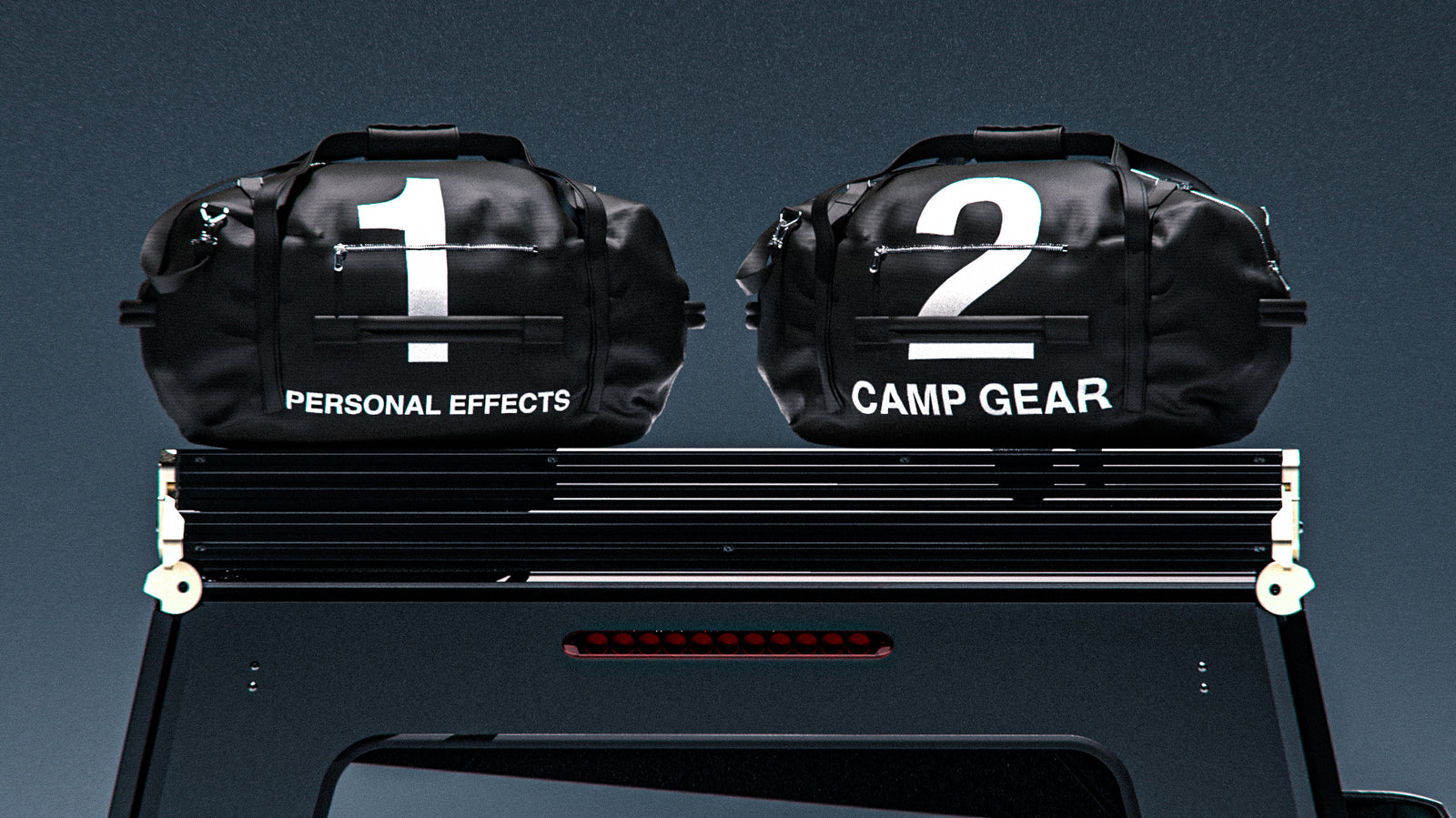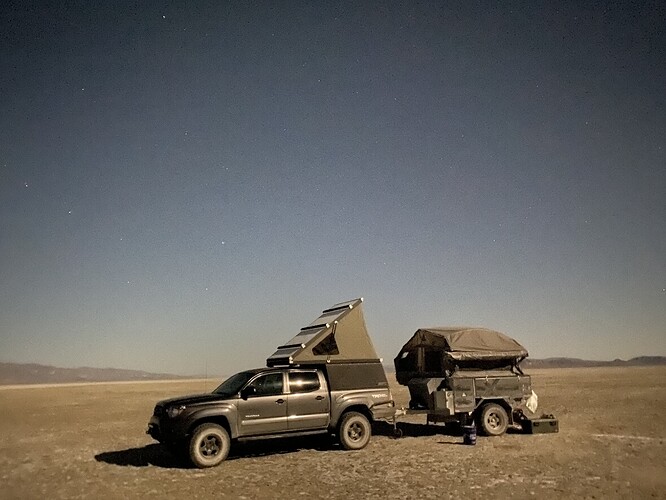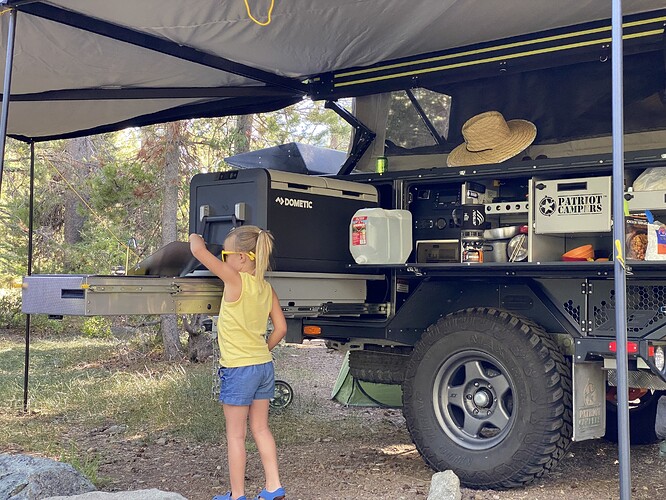
You’ve got an entire truck, why not take the kitchen sink? Less stuff means less weight. Less stuff means less packing. And, often, less stuff means more experience. And isn’t that the entire point? Refining your loadout into its simplest form might just make your next camping trip better. Here’s how.
Why
High speed, low drag. Limiting yourself to two duffel bags worth of stuff will minimize weight, reduce potential points of failure, and drastically lower (if not entirely eliminate) the time it takes to pack.
Streamlining the entire experience will work to eliminate obstacles. Do you have time to get out the door before traffic backs up? That becomes a non-issue. Will your truck get down that trail without getting stuck? Carrying less crap makes any type of driving easier. Will something break? The odds decrease drastically if big, heavy objects aren’t bouncing around inside your bed, and carrying less weight is kinder to everything from your truck’s cooling system, to its suspension, to its brakes.
Those are the practicalities. What about less tangible benefits? Saying “learn how to do more with less,” is basically synonymous with “learn how to enjoy camping more.” Why leave home if you’re planning to try and entirely protect yourself from the elements? Problem solving will keep your mind occupied with challenges of the moment and of the environment, not the mundane realities of life back in civilization.
How
Let’s break out these two bags by personal effects, and camp gear. Although some crossover in loads by bag is allowed.
Personal Effects Bag
- Comfortable shoes
- Spare socks
- Base layers (top and bottom)
- Fleece or sweater
- Cozy hat
- Puffy jacket
- Rain shell
- Pants
- Swimsuit
- Towel
- Headlamp
Camp Gear Bag
- Sunscreen
- Bug Spray
- Compact lantern w/batteries
- Baby Wipes
- Hand Sanitizer
- Compact folding shovel
- Trash bags
- Compact canister stove with fuel
- Backpacking meals
- Spork
- Stuff you need to make coffee
- Booze and/or weed
- Compact camp chair
- Lighter
- A good book
- Multitool
- First aid kit
You should also carry water. One gallon per-person, per-day, is a good rule of thumb.
Inside The Tent
There’s room inside your GFC’s tent for a couple of compressible sleeping bags or quilts, inflatable pillows, and some other small odds and ends you may want when it’s bedtime. Carrying a sleeping bag that has a comfort rating at least 10 degrees below any conditions you plan to face is a great way to ensure you’ll stay warm at night.
Some Notes On Hygiene
The easiest way to spoil a camping trip is to get diarrhea. There’s two main ways to get the runs: touching poop, and eating spoiled, contaminated or undercooked food. The two are not unrelated.
To successfully execute a poo while camping, first find a spot that’s at least 200 feet from any water source, trail, or campsite. Dig or kick a hole that’s four to eight inches deep (the bacteria that breaks down waste is present in the top soil layer), pop a squat, then bury your turds with the displaced soil. Pack out anything that isn’t human waste. Baby wipes will make clean up easier, quicker and more complete. Use hand sanitizer afterwards. Or, just stop at a gas station or pit toilet.
Eating probably sounds simpler, but there’s a few tricky vectors by which toxins or bacteria can enter your body. The first is obviously through dirty hands. Use hand sanitizer before doing any meal prep. The next is through undercooked food. Both elevation, and unfamiliar heat sources can alter cooking times. Carrying a meat thermometer is a great way to ensure you’re cooking stuff adequately. The last vector is dirty dishes, which is where stuff gets tricky. Fail to completely sanitize a dish, pot, or your spork, and bacteria will begin to grow on that surface almost immediately. Heating up that surface by cooking your next mealwill kill that bacteria, but cooking cannot eliminate the toxins those bacteria were excreting. And those toxins will upset your stomach. Leftover soap, from failing to fully rinse dishes after cleaning them can also irritate your bowls.
It’s these reasons why you may find eating dehydrated backing meals out of their bags, then licking your spork clean before wiping it with hand sanitizer to be a much simpler solution.
But…
What if you want to eat a gourmet meal, made from scratch, for breakfast, lunch, and dinner? What if you want to take a hot shower every night? What if you can’t miss the big game? Leaving all that behind can make you feel incredibly free. Or, it can be really nice to bring some of it camping with you. If you choose to do that stuff, make it a real choice based on experience. Go camping with just the above. Learn what you do and don’t like, and make changes from there. Don’t jump into the whole thing assuming you need certain luxuries just to spend a fun night outdoors.
How do you pack for your adventures, and what camping hacks have you come up with to lighten the load? Let us know in the comments!

